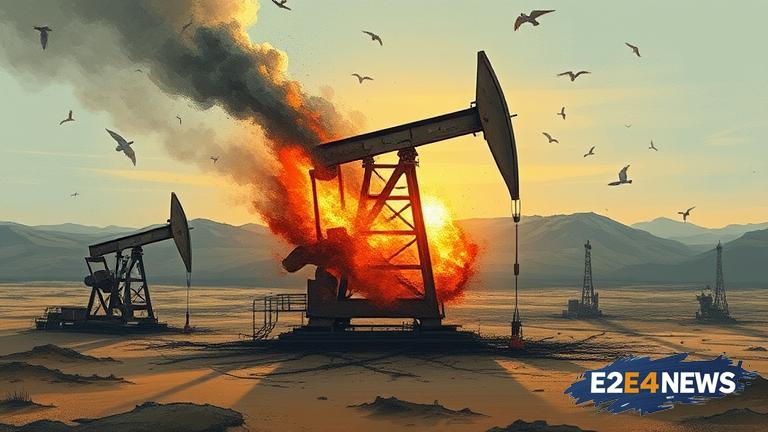The world is currently experiencing a significant energy crisis, with oil prices skyrocketing and showing no signs of slowing down. This has led to a surge in inflation, affecting economies worldwide. The root cause of this crisis is the dwindling global oil reserves, which cannot be solved by simply printing more money. The law of supply and demand dictates that as oil becomes scarcer, its price will continue to rise. The COVID-19 pandemic has also played a role in the crisis, as lockdowns and travel restrictions led to a decrease in oil demand, causing oil prices to plummet. However, as the world began to recover from the pandemic, oil demand surged, catching oil producers off guard. The result is a severe shortage of oil, which has driven prices up. The situation is further complicated by the fact that many oil-producing countries are struggling to increase production due to years of underinvestment in their oil industries. The lack of investment in new oil projects has led to a decline in global oil production, exacerbating the shortage. Furthermore, the shift towards renewable energy sources has also led to a decline in investment in traditional oil and gas projects. While renewable energy is a crucial step towards reducing carbon emissions, it is not yet capable of meeting global energy demands. The energy crisis has far-reaching implications, affecting not only the economy but also food production, transportation, and other critical industries. As the world struggles to come to terms with the new reality of expensive oil, governments and companies are being forced to rethink their energy strategies. The crisis has also highlighted the need for increased investment in renewable energy sources, as well as more efficient use of existing energy resources. In conclusion, the global energy crisis is a complex issue that requires a multifaceted approach to solve. Printing money may provide temporary relief, but it is not a sustainable solution to the problem of dwindling oil reserves. Instead, the world needs to focus on increasing energy efficiency, investing in renewable energy, and developing new technologies to extract oil from existing reserves. The future of energy production looks uncertain, but one thing is clear: the world cannot continue to rely on traditional oil and gas sources forever. The energy crisis is a wake-up call for governments, companies, and individuals to take action and work towards a more sustainable energy future. The consequences of inaction will be severe, with the potential for widespread economic disruption, social unrest, and environmental degradation. As the world navigates this challenging time, it is essential to prioritize energy security, sustainability, and innovation to ensure a brighter future for generations to come.
